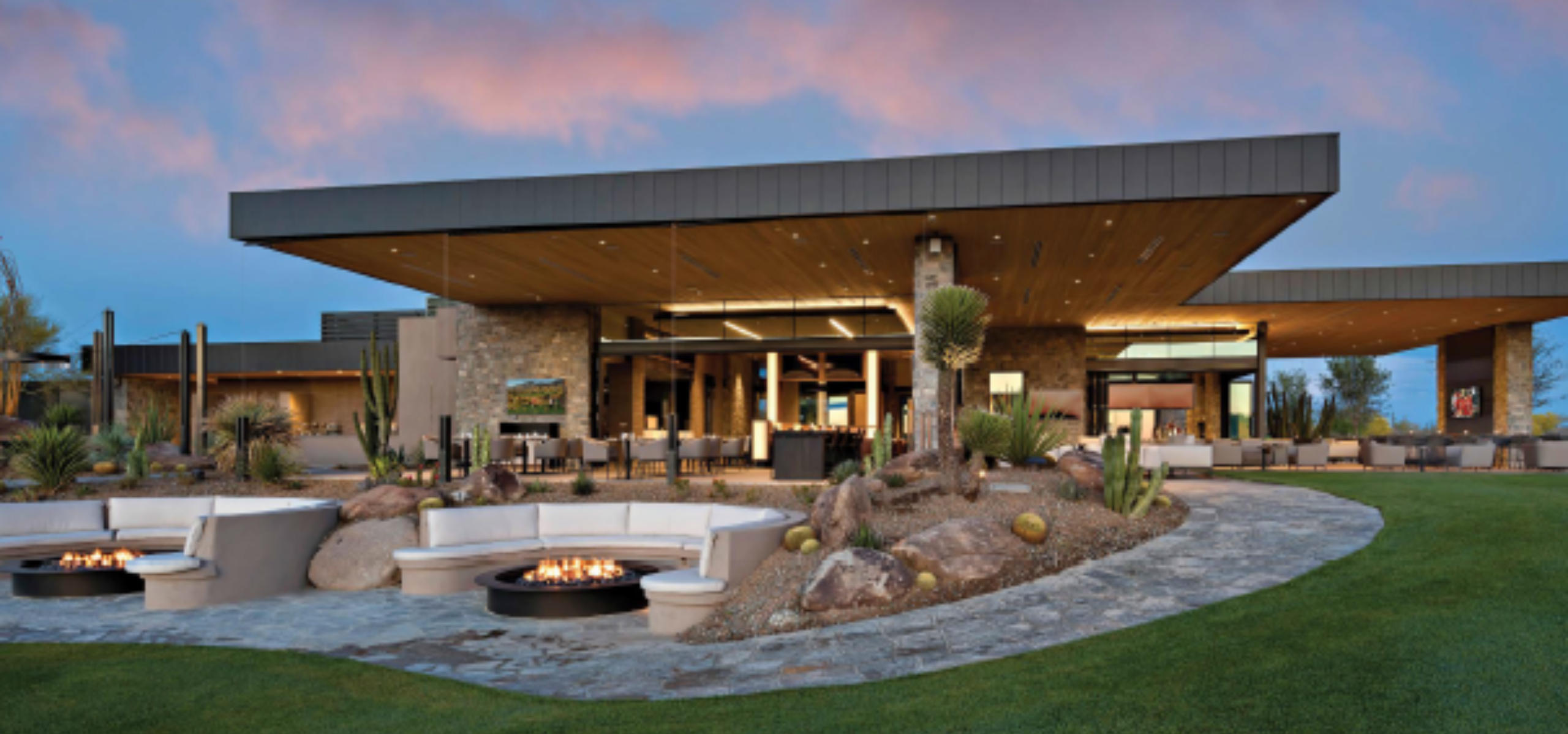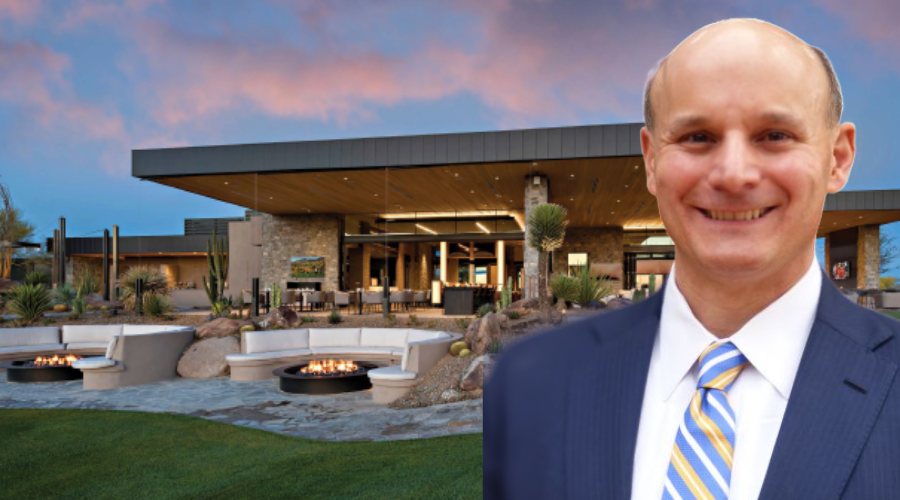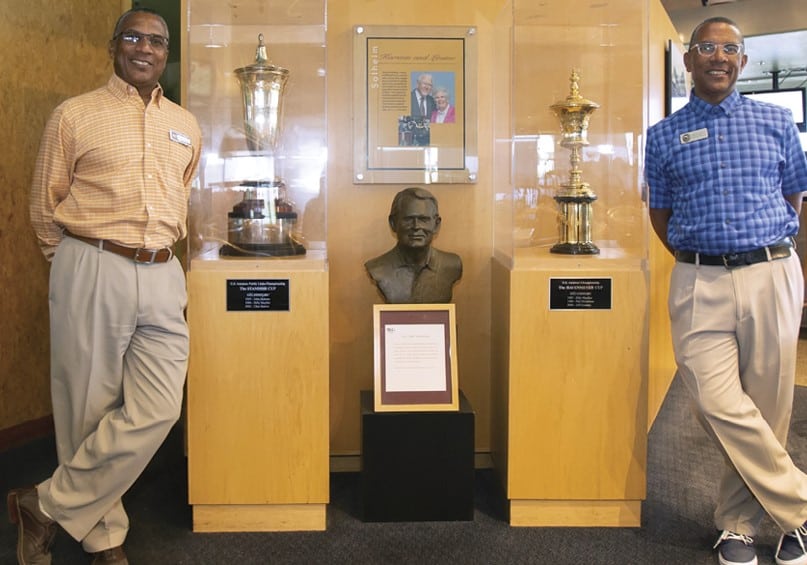Damon DiOrio, CCM, CCE has long been recognized as one of the top general managers in the private club industry, stemming from his 14 years leading the Charlotte Country Club and five years as CEO of the prestigious Desert Mountain Club in Scottsdale, Ariz. In a recent conference call with more than 100 university professors who teach hospitality, DiOrio was asked to identify the greatest current challenge in the club industry. He was quick to reply, “Club governance.” We wanted to know why. Here is what he told us.
Club Governance (CG): Damon, with all the other challenges facing clubs today—labor shortages, supply chain issues, inflationary food and fuel costs—why have you singled out governance as the greatest challenge?
Damon DiOrio (DD): To a large extent, it’s a matter of what we can control. While labor shortages and inflation present significant challenges, they are conditions beyond our control, and sophisticated club executives will implement tactical operational changes to successfully navigate through these issues. Establishing an effective governance model is a far greater challenge as many clubs have a history of poor governance, which can thwart an effective leader’s ability to effect positive change. My point, therefore, is to encourage club leaders to address a challenge within their control and work toward improving governance structures and policies that enable the club GM/CEO to effectively lead their operations.
CG: Why do you believe club leaders need encouragement?
DD: Mainly because developing an effective governance model requires challenging the status quo, which is based on decades of policies that are not best practices but have been institutionalized into a club’s culture. Changing entrenched club traditions is a systemic process that requires courage and strong leadership to challenge. While I generally appreciate the value of traditions in defining the brand of a club, when they stand in the way of good governance and positive results, they deserve to be reviewed and, in most cases, changed.
CG: For example?
DD: To start with, the election process. Choose board members on their merits and the skill sets needed to provide a well-rounded and diverse board. Then, use an uncontested process involving robust vetting by an independent, objective nominating committee. Too many clubs rely on contested elections that can result not only in reducing the candidate pool, but also in electing board members on their popularity, seniority or agenda.
CG: OK. Assume a club has put the right people on the board. Then what?
DD: Now you want the board to speak with one voice—in writing. It does that by developing policies, which are housed in a document we call the board policy manual (BPM). The BPM communicates how the board will carry out its fiduciary duties. It clarifies the role of the board, its members and officers, and the GM/CEO. It also describes the various club committees, their roles, and their proper alignment. Our board members are caring and successful professionals, but they are volunteers. Having solid policies in place provides stability and continuity.
CG: Speaking of committees, what advice do you have for club leaders on how to get the most of their committees?
DD: First, look at the functions where a committee can assist in proposing policies, advising leaders and bringing the benefit of multiple perspectives. There are generally two types of functions and therefore two types of committees: board committees like finance, audit and membership, and operations committees like golf, greens and grounds and house. The tradition among clubs is to have all committees report to the board, but having operating committees report to the board invites the board to micromanage functions to which it should hold the GM accountable.
CG: So do you have committees report to you as the GM/CEO?
DD: Absolutely. The house and golf and agronomy committee both report to me. We have seven golf courses at Desert Mountain and the golf and agronomy committee provides useful advice, player insights and the vision of the golf experience they desire to our key directors. For example, I recently asked the committee to help us define our outside tournament strategy, including a recommendation for a USGA Championship request. This type of strategic guidance is welcomed and appreciated.

CG: Golf is such an important part of the Desert Mountain community. Does your board worry about not having the golf & agronomy committee report to them?
DD: No. The board holds me accountable as the CEO for the condition of our golf courses and the quality of our golf program. It also gives me the authority and resources to get the job done. The golf & agronomy committee provides feedback and suggestions, and at the end of the day, it’s my responsibility to deliver the finest golf experience to our members.
CG: Is your title of CEO commonly given to general managers?
DD: No, but I highly recommend clubs consider it. Successful businesses are led by capable CEOs. They are not managed by committees or by boards of directors. Yet too many clubs hold on to governance models based more on traditions than operational efficiency. More than the title, a business mindset and model help shape expectations for all stakeholders and can help pave the way for a cultural shift. As a successful CEO you are expected to forge a safe, positive and healthy culture; engage state and local officials; be a philanthropic leader in the community; and protect the history and culture of your organization for decades to come.
CG: What would you say to someone who argues that running a club as a business will result in a more staid, impersonal culture rather than a more collegial community?
DD: I would say, “Come to Desert Mountain!” We see no conflict between a caring culture and an efficiently run operation. Just the opposite. We diligently promote a warm and welcoming culture, highlighted by personalized service and name recognition. Our people—members and our staff—are our top priority. But along with our commitment to community is our commitment to stewardship and that means using our authority wisely to govern effectively and to manage efficiently.
CG: Any final thoughts on the challenge of governing a private club?
DD: Only to remind club leaders that while they are forced to react to challenges like inflation and labor shortages, they can be proactive in addressing their governance model. There are plenty of good examples of clubs employing sound governance principles and practices. Search them out, adopt them and use them to develop a robust governance model, which will provide the tools to succeed in meeting all manner of challenges.
This interview was prepared for the National Club Association‘s Summer 2022 Issue of Club Governance.




